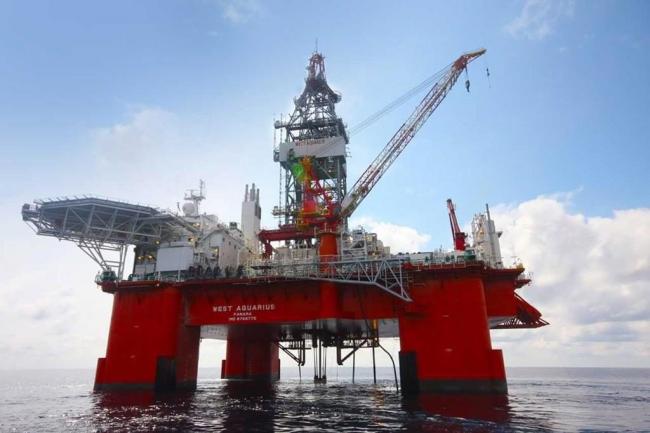Articles Menu

BP Canada has spewed out 136,000 litres of a toxic mud into the Atlantic Ocean off the coast of Halifax during deepwater offshore exploratory oil drilling, a federal regulator said Friday in a special bulletin.
The incident was reported at the company's West Aquarius Drilling Unit, about 330 kilometres from Halifax on the Atlantic Ocean. The incident occurred less than four months after Environment and Climate Change Minister Catherine McKenna gave the green light to the new drilling project in February, after determining that it was unlikely to cause environmental damage.
The regulator, the Canada Nova Scotia Offshore Petroleum Board, said that the leak was stopped, but officials are still trying to figure out what caused the incident.
"A remote operated vehicle was launched to determine the source of the discharge," the regulator said in a statement. "Preliminary indications is (sic) that it is from piping that forms part of the mud system approximately 30 metres below sea level."
In a statement, a spokeswoman for the regulator confirmed it had opened an investigation.
“We will not be commenting further on the investigation while it is ongoing and will report publicly once the investigation is complete,” said the spokeswoman, Stacy O’Rourke in an email to National Observer.
In April, the oil giant began drilling the first of seven planned exploratory wells on the site. Some of these wells are twice the depth of the Deepwater Horizon well, site of the largest marine oil spill in history in 2010. The explosion and sinking of the Transocean oil rig ravaged the Gulf of Mexico, leaking about 3.19 million barrels of oil from BP’s pipes into the ocean over 87 consecutive days.
Several critics have expressed concerns that the federal review of the deepwater drilling project was flawed and failed to assess the risk, National Observer reported in May. A small Nova Scotia town on the coast, Lunenburg, has also written to McKenna and federal Fisheries Minister Dominic LeBlanc, urging them to take a second look at the review and reconsider permission to drill.
The regulator said it was notified about the incident on Friday and has been monitoring the situation since then. The regulator said that the Canadian Coast Guard was also notified.
The drilling mud that spilled is a heavy, dense fluid that is used to lubricate the drill pipe and overbalance reservoir pressure, the regulator said. The substance has low toxicity, and would sink rapidly to the ocean floor, it added.
The regulator also said that typically, the "effects" from these types of spills are limited.
While the regulator said that the mud had low toxicity, BP Canada told National Observer in a statement that it contained synthetic oil that was not toxic and selected based on existing offshore drilling guidelines.
The company spokeswoman, Anita Perry said the leak was detected on Friday.
"Drilling operations were suspended once the leak was detected and the loss of drilling fluid was stopped," she said. "The well is secure and drilling operations remain suspended."
The material sunk to the surface because of its weight, she added in the statement.
"BP takes this incident very seriously and will continue with the investigation to understand the cause."
with files from Joel Ballard
[Top photo: BP Canada reported a spill of about 136,000 litres of drilling mud from its West Aquarius drilling platform on June 22, 2018. Handout photo from BP Canada]